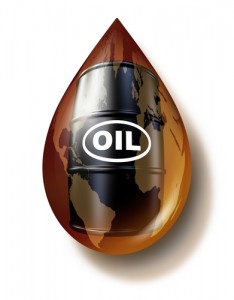WASHINGTON – Federal regulators issued an emergency order Tuesday requiring more stringent testing of crude oil before shipment by rail to determine how susceptible the cargo is to explosion or fire, a response to a string of train accidents since last summer involving oil from the Bakken region of North Dakota and Montana.
The order also would place crude oil under more protective sets of hazardous materials shipping requirements, rather than allowing some shipments to be treated as less dangerous, the Transportation Department said.
That means the fuel may no longer be carried by tank cars that lack certain safety features, according to government officials. That includes 1,100 cars that account for about 3 per cent of the total crude fleet, according to the Association of American Railroads.
However, the order did not restrict oil companies from continuing to ship crude using tens of thousands of tank cars known as DOT-111s that the National Transportation Safety Board says are at risk of rupture in an accident.
Shippers already had to classify oil shipments based on the risk for explosion or fire, but federal investigators found that many shipments were being misclassified as less dangerous. The order said testing for classification before shipment must be done “with sufficient frequency and quality” to make sure the oil’s volatility is properly gauged.
Government investigators found crude oil being transported from the Bakken region was misclassified in samples taken from 11 out of 18 truck shipments en route to rail loading stations, federal officials said earlier this month.
“Today we are raising the bar for shipping crude oil on behalf of the families and communities along rail lines nationwide. If you intend to move crude oil by rail, then you must test and classify the material appropriately,” Transportation Secretary Anthony Foxx said in a statement.
Hazardous materials shipments are supposed to be classified into one of nine categories depending on the risk involved. If the materials are misclassified, they could wind up being shipped in less protective rail tank cars, and emergency personnel might follow the wrong protocols when responding to a spill.
A runaway train with 72 tank cars of Bakken oil derailed, exploded and burned in the downtown area of Lac-Megantic, Quebec, near the Maine border in July. Forty-seven people were killed and 30 buildings destroyed. Oil trains have also exploded and burned in North Dakota and Alabama in recent months.
The Lac-Megantic accident was a wake-up call for safety officials, who were surprised by its severity. Tests taken of Bakken oil since the accident suggest it is more dangerous than some other types of crude.
The oil in the train that derailed in Lac-Megantic was misclassified as “packing group III,” which the safety administration equates to minor danger. Under the emergency order, oil no longer would be able to be shipped using that less protective category of safety requirements.
U.S. crude oil production is forecast to reach 8.5 million barrels a day by the end of 2014, up from 5 million barrels a day in 2008. The increase is overwhelmingly due to the fracking boom in the Bakken region.
U.S. freight railroads transported about 415,000 carloads of crude in 2013, up from just 9,500 in 2008, according to government and industry figures.
The emergency order calls for “minimum testing” of any large bulk quantity of crude that is being transported.
That includes determining the crude’s flash point, how corrosive it is to steel and aluminum, and whether the dangerous and explosive gas hydrogen sulfide is present. It also requires determining the percentage of flammable gasses in the crude – an issue of heightened concern for the oil from the Bakken region, which has higher levels of natural gas than other crudes.
Kari Cutting, vice-president of the North Dakota Petroleum Council, said the DOT’s order effectively classified crude oil somewhere between highly-volatile gasoline and less-volatile diesel fuel.
She said that would be a useful to raise awareness about the properties of crude shipments among first responders who might have to deal with an accident. But she suggested it shouldn’t be cause for additional public concern, since all of those materials are regularly handled by railroads.
Jack Gerard, president of the American Petroleum Institute, said in an interview last week that industry standards for how those tests would be conducted could take several months to finalize.
“Current law requires that we test and characterize” crude oil, Gerard said. “We’re taking this in a much more granular, detailed way to look at the factors we test, how often we test.”
Gerard said testing practices among different oil companies have varied.
“Some are very, very frequent,” he said. “Others are intermittent, based on where the oil is coming from, where’s it’s stored.”
___
Brown reported from Billings, Mont.
